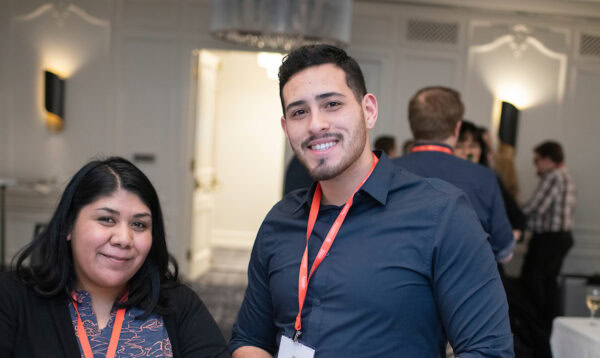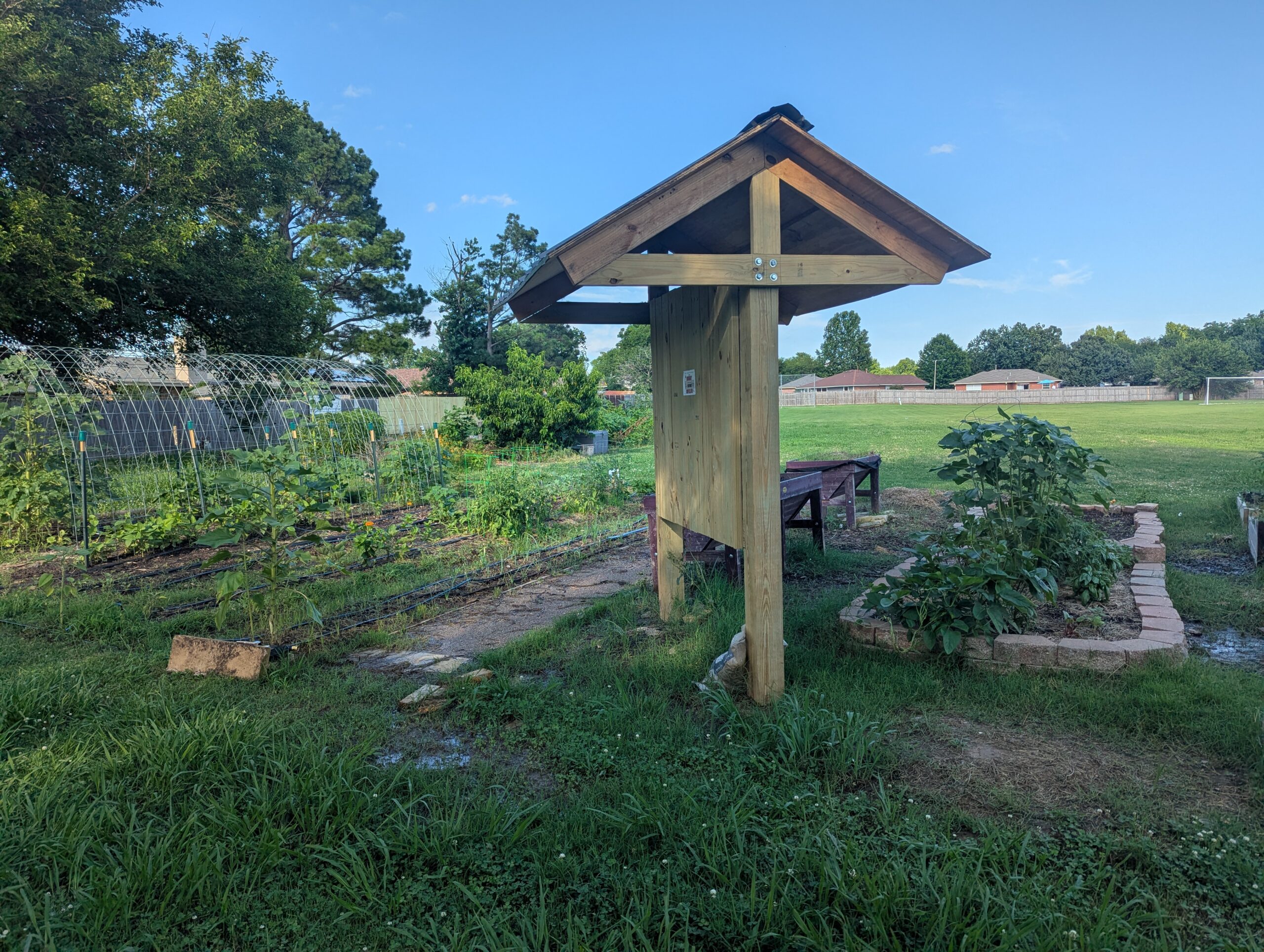The AHA’s Career Diversity for Historians initiative is leading a national conversation to better align the purpose of doctoral education with the varying skills, values, and interests of graduate students and the changing professional opportunities for historians within and beyond the academy. In the spring of 2018, 20 PhD-granting history departments were awarded Career Diversity implementation grants to support a team of faculty and a graduate student fellow to collaboratively build sustainable cultural and structural change in their doctoral programs. After two years of work at our partner institutions, we asked the fellows to discuss what they’ve learned and share some of the innovative ways they are creating student-centered doctoral programs that prepare history PhDs for a range of careers.

Attendees at the 2019 Career Diversity Reception in Chicago. Marc Monaghan.
In this post, the second of a six-part series, Career Diversity fellows Alejandra Garza (Univ. of Texas at Austin), Stephanie Narrow (Univ. of California, Irvine), Matt Reeves (Univ. of Missouri–Kansas City), Shuko Tamao (Univ. at Buffalo, State Univ. of New York), and Lillian Wilson (Wayne State Univ.) discuss how graduate programs can benefit from building closer ties to other parts of the university and their local communities.
How has the Career Diversity initiative helped your department to connect with the broader university or your local community?
AG: This initiative pushed UT-Austin to break out of our department bubble and interact with others on campus, including Liberal Arts Career Services, the Counseling and Mental Health Center, and most importantly the newly formed Texas Career Engagement (TCE) office. Even before she officially started, TCE director Annie Maxfield spoke with me about the changes she wanted to bring to UT-Austin regarding graduate career paths.
ST: Each semester, UB ran a professional development proseminar, inviting guests from the university community such as the associate director of university accessibility resources, professors and graduate students from other departments (i.e., English, Social Work, Gender Studies, etc.), and local community members. Most speakers were alumni and current graduate students with a range of professional experiences in teaching, public history, policymaking, consulting, and community organizing.
SN: We realized early on that two things were integral to this initiative: meaningful relationships with others on campus who are also deeply invested in graduate professional development and building professional networks beyond the university. We have partnered with the UCI’s Humanities Center, Division of Career Pathways, Graduate Division, Library and Special Collections, and the School of Humanities to offer a range of programming, resources, and conversations aimed at preparing history and humanities students for post-PhD life. Outside the university, we wanted to expand paid internship opportunities for PhD students. This past year, the Graduate Division generously provided funding to support PhD candidate Brian Spivey’s internship with the Los Angeles Review of Books. Moving forward, we are looking to local government and businesses as potential internship sites.
We realized early on that two things were integral to this initiative: meaningful relationships with others on campus who are also deeply invested in graduate professional development and building professional networks beyond the university.
LW: Career Diversity has supported our efforts to expand the Wayne State Humanities Clinic, an innovative graduate internship program that matches humanities and humanistic social sciences graduate students with Detroit nonprofits and small businesses for paid summer internships. Thanks to this support, we have tripled the clinic’s impact: in 2020, we have hired 23 interns from 14 academic departments to work with 25 community partners.
What have been the benefits of these connections to the department and to the local community?
ST: Graduate students seem most at ease discussing career issues with alumni and other graduate students. Proseminar speakers have been candid about how their graduate education was or was not an advantage in their work outside the academy. For example, speakers with experience in policy explained how they had to learn to write a brief or to condense their findings into a single visual. They needed to unlearn skills they had acquired during their dissertation and to communicate their knowledge in the way that policymakers and community members would grasp.
MR: Community connections have helped both students and community members see the value that people with historical training bring to the workplace. Our community partners are often impressed with historians’ research and problem-solving skills as well as their ability to propose a course of action and solicit feedback, two skills that require mature judgment.
LW: The Humanities Clinic makes humanities work central to Detroit’s revitalization and has revealed the tremendous need for skills like archival research, data analysis, exhibition design, oral history, and curriculum development in our community. COVID-19 has increased demand for this expertise, and we are fortunate to be able to increase the number of community partners we are working with this year, many of them working to meet essential needs like healthcare, food, and clean water in the midst of the pandemic.
Community connections have helped both students and community members see the value that people with historical training bring to the workplace.
What has been the biggest challenge to creating and sustaining these relationships?
AG: One challenge we’ve faced is getting more faculty to actively engage with our work. Faculty are very busy people, with multiple competing priorities, which can make it difficult to recruit new faculty members to create programming, redesign their courses, or make changes to their advising. Advising may be particularly important because if students get the impression that their advisers are skeptical about careers beyond the professoriate, they are more likely to be skeptical about the value of Career Diversity.
MR: The most unanticipated challenge has been convincing skeptical students that working in nontraditional settings is a good use of their time, a criticism particularly common among students with prior career experiences. They typically imagine grad school as a transformative experience that will make them into an academic historian. For these students, other jobs seem like settling. Hopefully, interventions to expand the definition of “historian” in student recruitment and early coursework will help students align their expectations with the most likely career outcomes for history PhDs.
SN: Our biggest obstacle is also student buy-in. Students are overcommitted, overburdened, and overwhelmed by the sheer number of events and workshops available to them. Between their coursework, research, and teaching, it’s understandable that some of our events have low attendance. In response, we collaborated with other units on campus to pool our resources and avoid duplicating events and are developing more digital resources for our website.
Alejandra Garza is a PhD candidate at the University of Texas at Austin. Her research explores the connection between Mexican American vaqueros and communal celebrations throughout the 20th and into the 21st century.
Stephanie Narrow is a PhD candidate and program officer for the University of California, Irvine’s Career Development for Historians Program. Her research explores British and American imperialism in the 19th-century Pacific world.
Matt Reeves recently completed his PhD at the University of Missouri–Kansas City. For the past year, he’s worked as the education and outreach librarian for special collections at the Kansas City Public Library, where he leads field trips, acts as a research coach, and creates historically focused web content.
Shuko Tamao recently earned a PhD and was a Career Diversity fellow for the University at Buffalo’s Department of History. She is a public historian who is focused on the history of disability and medicine. As an English as a Second Language educator, she is passionate about creating an accessible and inclusive learning environment for everyone.
Lillian Wilson is a PhD candidate in US history and gender at Wayne State University and coordinator of the Wayne State Humanities Clinic. Her past professional experience includes work for educational, community, and volunteer programs at the Smithsonian Institution, the Phillips Collection, and the Detroit Historical Museum.
This work is licensed under a Creative Commons Attribution-NonCommercial-NoDerivatives 4.0 International License. Attribution must provide author name, article title, Perspectives on History, date of publication, and a link to this page. This license applies only to the article, not to text or images used here by permission.


